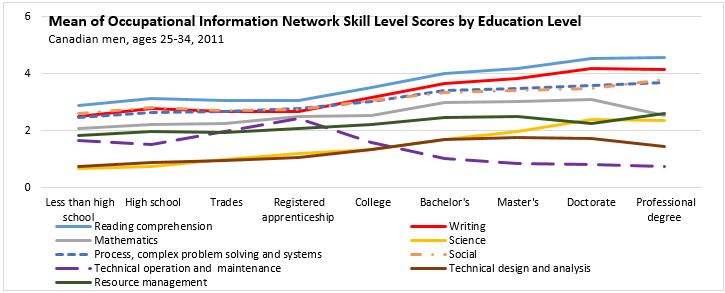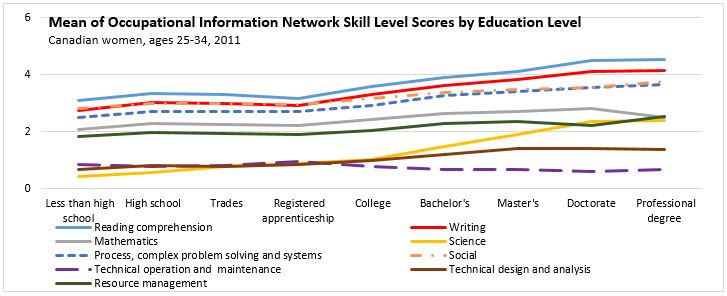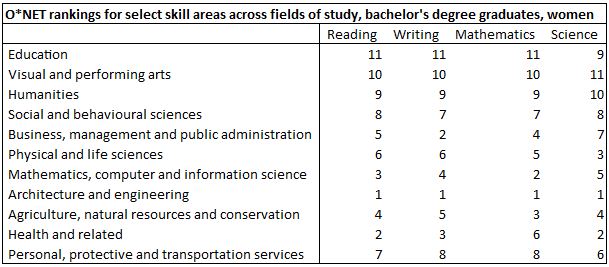The Economics and Statistics Division maintains archives of previous publications for accountability purposes, but makes no updates to keep these documents current with the latest data revisions from Statistics Canada. As a result, information in older documents may not be accurate. Please exercise caution when referring to older documents. For the latest information and historical data, please contact the individual listed to the right.
<--- Return to Archive
For additional information relating to this article, please contact:
January 24, 2017STUDY: DO POSTSECONDARY GRADUATES LAND HIGH-SKILLED JOBS? Statistics Canada released a study today which examines the relationship between occupational skill requirements and educational attainment using data from the 2011 National Household Survey (NHS) and the Occupational Information Network (O*NET). Specifically, the study examines the skills required for jobs held by young Canadians (ages 25-34) who worked 30 or more hours a week and compared that to their educational attainment.
Information on skill requirements by occupation is taken from O*NET, which was developed in the United States, which were then assigned to 495 of the 500 National Occupational Classification (NOC) codes used in the 2011 NHS. Requirements were considered for nine broad skill areas: reading comprehension; writing; mathematics; science; process, complex problem solving and systems; social; technical operation and maintenance; technical design and analysis; and resource management.
Higher Educated Individuals Work in Jobs with Higher Skill Requirements
In general, the study found that skill-level requirements in all skill areas generally increase with higher educational levels. In other words, individuals with higher educational attainment tended to work in jobs with higher skill requirements. Generally, bachelor's degree holders worked in jobs with higher skill requirements than college graduates, who worked in jobs with higher skill requirements than high school graduates.


There were three noteworthy exceptions to this trend. First, the technical operation and maintenance skill requirements for a given job do not generally increase with the education of the job-holder. Second, doctoral degree holders tend to work in occupations that require less resource management skills than other university graduates. Third, professional degree holders tend to have jobs that require lower mathematics skills than other university graduates, though this was mainly specific to law graduates.
Skill Requirements Vary by Field of Study
The study also found that the skills required for an individual's job vary considerably by that individual's educational field of study. Among bachelor's degree holders for example, graduates in architecture, engineering, and related technologies tend to work in occupations which require a high degree of skills across multiple dimensions, ranking at the top or very close to the top in eight of the nine skill areas. In contrast, bachelor's degree holders in education; visual and performing arts, and communications technologies; and humanities generally work in jobs with lower skill requirements compared to other bachelor's degree holders in most skills examined.


Gender Differences in Skills Required
The study found that there existed differences in the skill requirements associated with occupations in which men and women tended to work. Among university educated men and women, men generally worked in jobs requiring higher skills in mathematics, technical operation and maintenance, technical design and analysis, and resource management, compared to women. In all other skill areas, job skill requirements were similar for university educated men and women.
Among non-university educated men and women, women generally worked in jobs which required greater reading comprehension, writing, and social skills, while requiring less technical operation and maintenance skills compared to men. In all other skill areas, job skill requirements were similar for non-university educated men and women.
Source: Statistics Canada - Analytical Studies Branch Research Paper Series, Catalogue no. 11F0019M
<--- Return to Archive